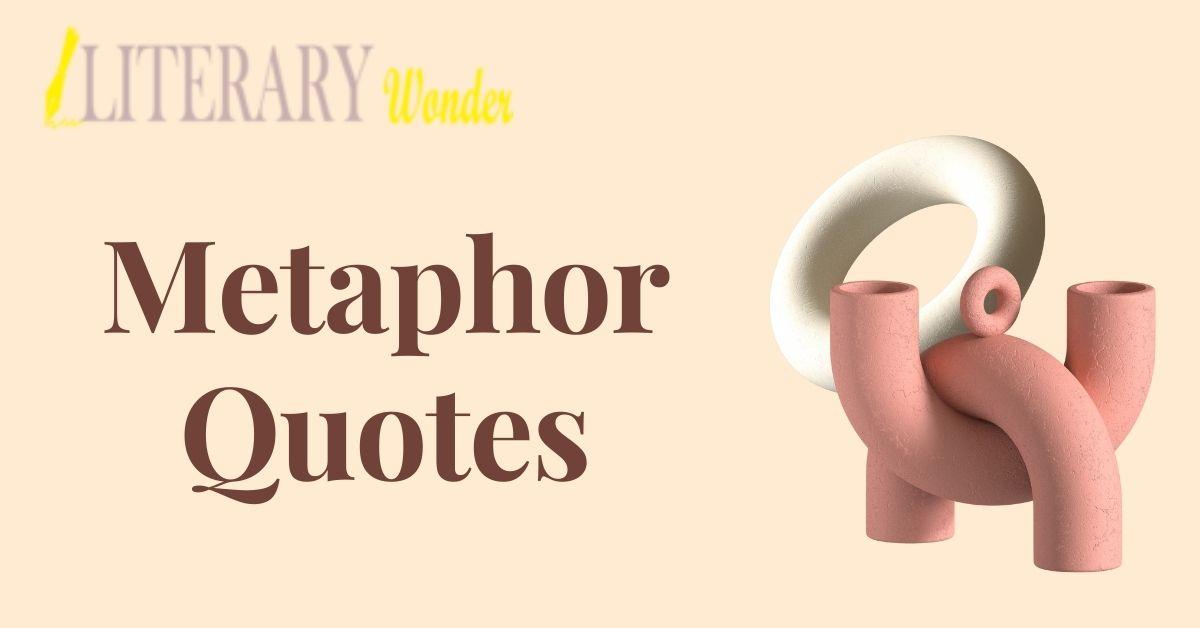Definition of Metaphor
A metaphor is a powerful figure of speech that implies a comparison between two contrasting things. As a literary element, it draws a direct comparison without using words like “like” and “as.” It is used in almost all types of writings to express abstract truths in form of concept or image. For example, the very title, To Kill a Mocking Bird by Harper Lee, refers to the metaphor of innocence and purity that the writer imbued throughout the text. He presents Tom Robinson and Arthur Boo Redly as innocent, but they are misunderstood, and this misconception pushes them toward a drastic end. The comparison between the characters and mockingbird demonstrates how man’s evilness brings catastrophe to the unharmed people.
Metaphor and its usage is not limited to writers and poets. Rather, it is used in everyday conversation. Here are some of the common examples of metaphors:
- He is a lion.
- I admire the cleverness of your better half.
- Time is money.
- He is the light of my life.
- Love is a fine wine.
- Life is not a bed of roses.
- The thunder at night was a mighty lion.
- Her voice is music to my ears.
- She is walking encyclopedia.
- He has a heart of stone.
Famous Examples of Metaphor
The usage of metaphor can be spotted in many famous examples of lyrics, drama, poetry and prose. Some of the common examples are as follows.

Famous Examples of Metaphor
Writing metaphor
As a literary device, metaphor is to draw direct comparisons between two different things. Using this device, the writers can easily associate readers between two seemingly different ideas, entities while stressing their feelings and thoughts. Therefore, the writers need to create appropriate metaphors in their writings so that the readers can hit the intended ideas of the text. The use of metaphor involves a subtle combination of principle and a secondary term.
For instance, “Hope is the thing with feathers.” In this verse, hope is the principal term, while feathers are the second term that adds to the meaning of hope. Moreover, metaphors allow writers to create mental images in the readers’ minds; their effective usage eliminates excessive explanations. Also, when used aptly, they invite readers to think about the logic involved in such a comparison.
Examples of Metaphor in Literature
Metaphor is very powerful literary element. Below are the examples of metaphors and how it adds depth to the texts;
Example#1 “We Wear the Mask” by Paul Lawrence Dunbar

“We Wear the Mask” by Paul Lawrence Dunbar
In this poem, Dunbar uses a mask as an extended metaphor to show how it safeguards his community from unnecessary poking of the world. The mask metaphor serves as a figure of speech in a sense that contradicts reality. In reality, African Americans are tormented, disheartened, and hopeless. However, this literary device’s insertion helps the writer show how they hide their fears and sufferings by using a fake mask of happiness.
Example#2 “Stopping by Woods on a Snowy Evening” by Robert Frost

“Stopping by Woods on a Snowy Evening” by Robert Frost
Frost compares the end of the world to both fire and ice in this metaphoric poetic piece. Presenting fire and ice as metaphors does not mean that the world will be destroyed because of these. Instead, fire is the metaphor of hatred, jealousy, and lust for power, evilness, and anger. Similarly, the ice stands for isolation, hostility, prejudice, and deceit. The insertion of these metaphors effectively conveys the idea that weapons are not necessary to bring destruction. However, it can easily cause by executing negative emotions among the masses.
Example#3 “Touchscreen” by Marshall Davis Jones

“Touchscreen” by Marshall Davis Jones
In this poem, Marshall criticizes the digital approach of the world. He states that we have earned this digitalization while sacrificing our moral and human values. Although the world has become a global village, where almost everything is just a click away. But this technological approach has turned us into zombies. He laments and objects to the ruling power of smartphones and other modern devices that have deprived humans of their real individual self. He wishes to exit this robotic world and desires to go back to the world to find humanity, love, and belongingness. Thus, using the touchscreen as a metaphor, Marshall has brilliantly exposed the bitter realities of the modern world and man’s awful state in a contrastive manner.
See Also:

